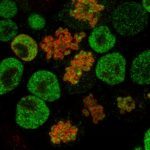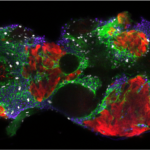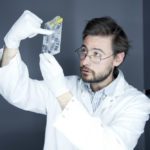About
From the Danish Cell Centre – University of Copenhagen (Denmark)
Abstract : Embryonic stem cells (ESCs) are immortal cell lines derived from the peri-implantation mammalian embryo. Both ESCs and the embryos from which they are derived are remarkable, in that individual cells retrain the capacity to begin developmental anew, despite having undergone a degree of patterning or differentiation. What is the basis for this plasticity at a transcriptional level? We have identified two novel mechanisms regulating this process. The first involves a protective activity of Polycomb co-repressor complexes, that enables transcriptional stimulation in the absence of commitment. The second relies on the reversible disengagement of RNA Polymerase II from specific pluripotency associated promoters in response to Erk signaling as it promotes primitive endoderm differentiation. This process occurs despite the continued presence of transcription factors bound at the enhancers for these genes, and remains reversible, as long as these transcription factors remain bound. The continued presence of these transcription factors at a protein level, but not at an RNA one, enables cells to begin differentiation, while retaining the capacity to reverse this decision. Thus Erk stimulates the induction of differentiation, while the stability of these transcription factors regulates an Erk independent transition into commitment.
Over the past few years a number of groups have found that ESCs are heterogeneous. We have found that the heterogeneities in these cultures resemble intermediates in lineage specification during early mammalian development. By shifting the culture condition, we alter these populations and move them developmentally to generate self-renewing cultures that represent different transition states in mammalian development, from the earliest totipotent cells to endodermal stem cell cultures.


